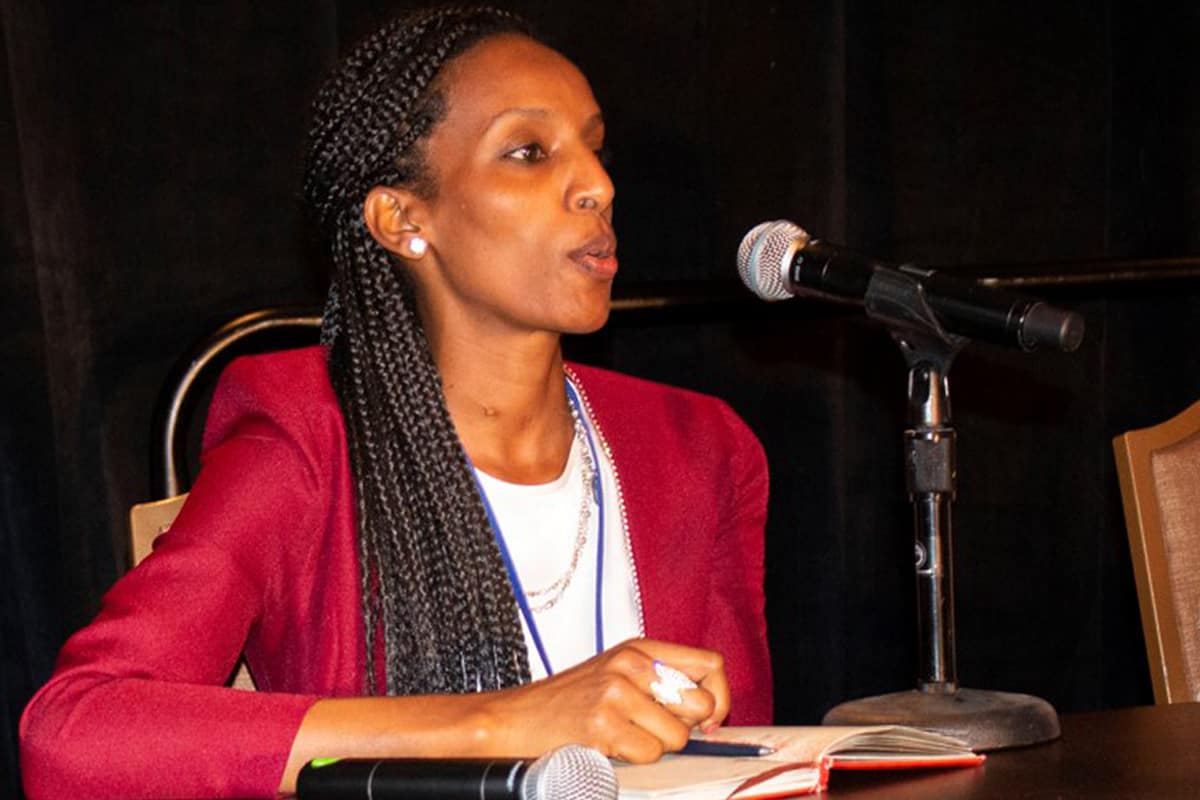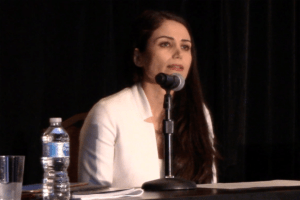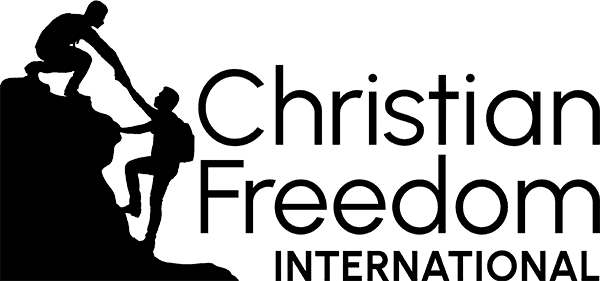Survivors Call for the End of Deadly ‘Apostasy’ Laws

Mariam Ibrahim, a Christian, was accused of ‘apostasy’ and sentenced to death in Sudan.
(Photo: William Levi)
When the Freedom to Believe is a Crime
Survivors who escaped torture and death sentences for their religious beliefs are calling for the end of “apostasy” laws.
Over 20 countries criminalize ‘apostasy’ – leaving a state religion – and over 10 countries carry the death penalty.
Mariam Ibrahim was imprisoned, gave birth in shackles, and sentenced to death in Sudan. She joined other survivors and experts at “Free to Choose,” an event exposing countries’ horrific punishments for not believing a state religion and to pressure governments to repeal their laws.
Raised a Christian by her mother, Mariam was considered a Muslim since her father, who abandoned her as a toddler, was Muslim. Her step-brother sought to punish her and found support in Sudan’s apostasy law. He accused her of leaving Islam.
A court sentenced her to 100 lashes and death for adultery – for marrying a Christian man. Muslim women are forbidden to marry a non-Muslim.
“I was not supposed to practice the Christian faith and not supposed to marry a Christian man,” Mariam said, “and the government laws supported” her accusers.
Mariam’s resilience and an international outcry led to her release.
Apostasy Survivors
In Iran, Marziyeh Amirizadeh spent 259 days in jail, surrounded by cries of prisoners being tortured, denied medicines, forced to say Islamic prayers, and covered in a urine-soaked blanket. She was sentenced to be hanged for converting to Christianity.
Cheikh Mkhaitir suffered 2,031 days in an isolated cell in Mauritania and his marriage revoked for “apostasy” after criticizing the use of the state religion to justify slavery.
In parts of India, citizens must request government permission to leave the state religion – which is oftentimes rejected – and risk up to three years imprisonment for failing to declare their conversion.
Converting is not outlawed, but conversion through ‘force, allurement, inducement, or fraud’. Stating that only Christians will enter heaven was deemed ‘force’ by the Orissa High Court. Charitable acts by religious groups, like education and health care, can be considered an “inducement” or “allurement”.
Apostasy Laws
Under apostasy laws, converts cannot openly practice their new faith. They can be arrested, tortured, threatened, imprisoned, and executed.
In some countries where a person’s religion is stated on their identification papers, Muslims are not allowed to change their religion on the ID papers.
Governments that want to avoid international criticism may let individuals, relatives, or mobs, attack the accused with impunity. False accusations of apostasy are oftentimes driven by personal vengeance or to take property.
Church leaders can be arrested for evangelizing and baptizing converts, foreign missionaries expelled, and national Christians punished for evangelizing or serving non-Christians. The children of converts must be taught the national religion in school.
Progress
Yet pressure is mounting on countries that violate the right to choose religion or belief with apostasy or blasphemy laws. ‘Blasphemy’ is defaming or insulting religious sentiment.
Australia is spearheading a global effort to repeal the death penalty for apostasy and blasphemy. This addresses the worst violators, said Ambassador Jos Douma, Special Envoy for Freedom of religion or belief from the Netherlands.
The U.S. Senate and House of Representatives passed resolutions against apostasy, blasphemy and heresy laws in 2020, Senator James Lankford noted.
Twenty-six countries agreed with the Statement on Blasphemy and Apostasy in 2019.
In 2020, Sudan repealed its apostasy law. “Sudan’s repeal of its apostasy law gives hope that even the most notorious violators of freedom can change,” said Wendy Wright, president of Christian Freedom International.
“Free to Choose” spotlighted survivors who were harshly punished for adopting, or leaving, a religion or belief. Legal experts and government officials also spoke at the event.
It was held during the International Religious Freedom Summit and hosted by Jubilee Campaign, Christian Freedom International, St. Charles Institute, Set My People Free, and the Religious Liberty Partnership.

Marziyeh Amirizadeh was sentenced to death by hanging in Iran for ‘apostasy’ for converting to Christianity. She survived abuse and horrific conditions in jail.
(Photo: William Levi)
